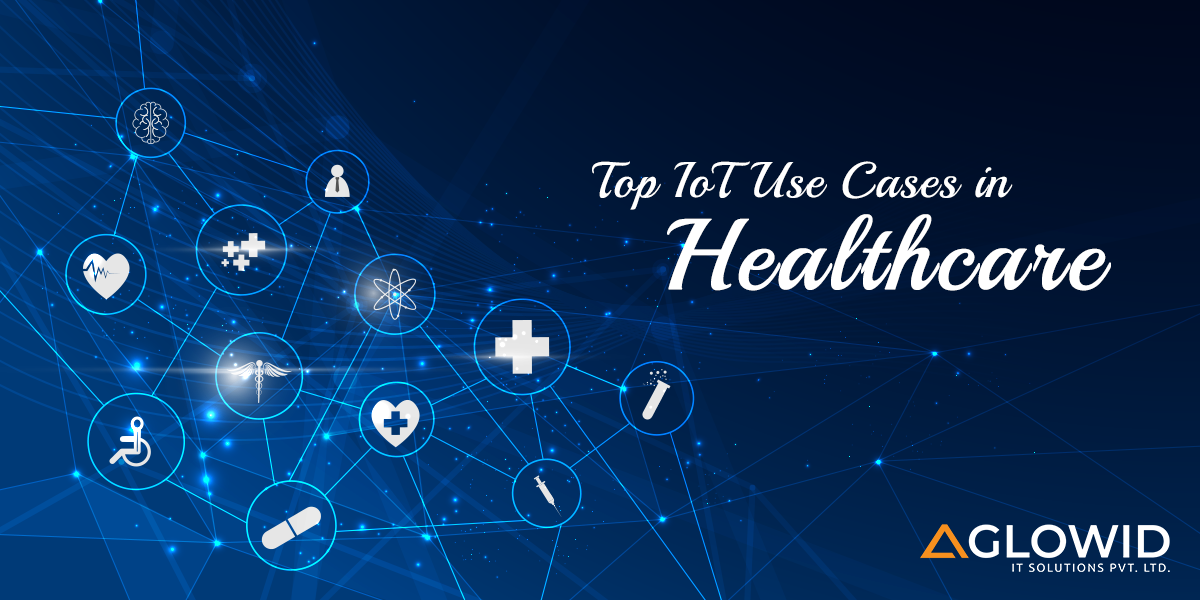Top IoT Use Cases in Healthcare
Internet of Things (IoT) is the latest technological advancement, which has turned many uncertainties and impossibilities into reality. We are currently in the trend where we require tech support at every step. Whether it's your home or office, IoT will simplify the things for you.

IoT is a network through which physical devices and objects are connected and can be accessed with the help of the Internet. It is merely a theory consisting connection of devices to the Internet or vice versa. With the rapid growth of IoT app development, it'll become an essential tool for businesses in handling their internal operations.
But how is IoT helpful for Healthcare Industry?
- IoT empowers healthcare providers to monitor patients and real-time access data continuously.
- Better results of the treatment with the help of cloud computing or virtual infrastructure.
- Automated-workflows, along with data-driven decisions, will guide you to decrease the cost and wastages.
IoT Use Cases in Healthcare
Managing clinical infrastructure effectively
If you have ever been to a clinic/hospital, then you have noticed that there are several moving parts to clinical support like inventories, people, operating rooms and numerous resources. The operating room in many hospitals is maintained in an old-fashioned way, using whiteboards for tracking and updating schedules.
With the help of IoT, clinical operations can be managed very effectively. All the movements like who, where, and what is happening are being tracked by the sensors. Through this, the data is automatically recorded in real-time as opposed to individuals making sure to update a whiteboard physically.
Mt. Sinai Medical Center in New York City is a live example of this. The hospitals carried out Autobed, which is an IoT-powered software that guides them in tracking occupancy of the patient - it effectively slashed wait times for 50%of their emergency room patients who needed inpatient care.
Remote health monitoring
There are several cases where patients don't have to visit hospitals. One of the most prevalent healthcare applications is telehealth, which provides numerous facilities right at your home. There are remote health devices such as Smartwatches, for measuring your blood pressure, heart rate, and much more. It doesn't only lower down the costs, but it guides in enhancing the patient's quality in living by saving the disruption of travel.
Better drug management
Below are some ways in which IoT helps healthcare in managing drugs:
- Understand how medications were conducted. For instance, if you think about executing an inhaler, then it becomes difficult in calculating the amount of medications provided. However, there are sensors present in the inhaler, which helps in auditing this perfectly. With this, it will become easy for physicians to know the number of medications used or whether the drug is effective.
- IoT is helpful in checking whether medication is absorbed or where it is consumed in the body. For instance, there are drugs with sensors locally available that monitor medicine as it is given.
Patients, tracking staff & Inventory
Safety is the most extreme concern of any hospital or clinic — or possibly it ought to be. It's challenging to keep up the most extreme amount of security without the ability in recording resources — staff individuals, patients, and equipment — all through the structure.
Many institutions are shifting to real-time & IoT-based location systems for promoting asset tracking. It is not only inexpensive in tracking daily activities in a hospital, but it is also useful, cutting-edge, and unobtrusive.
Conclusion
I hope this article is helpful for you if you are planning out a healthcare app development. You can also read our in-depth article on IoT in Healthcare | Exploring its Features, Benefits, Challenges & Applications. If you want any technical assistance to add any of these above features in your healthcare application, then you can contact our healthcare app or app development team.